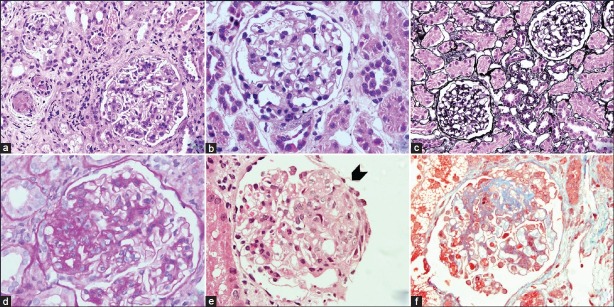Last Updated on January 29, 2024 5:37 pm by INDIAN AWAAZ
BY Dr Suneet Kumar Verma, Dept. of Internal Medicine, Alchemist Hospital, Panchkula, & Sparsh Clinic, Zirakpur, India; and Dr Sanjay Kalra, DM (AIIMS); Imm. Past President SAFES, Bharti Hospital, Karnal, India

The changes of early diabetes nephropathy may be reversed with thiamine (or vitamin B1) supplementation as shown by a significant decrease in urine albumin excretion (UAE), suggests a pilot study from the UK published in the journal Diabetologia.1,2
After finding in their earlier experimental studies that diabetes was linked to decreased thiamine levels in the glomeruli and plasma and increased thiamine clearance, Rabbani N et al postulated that addressing this deficiency by thiamine supplementation could stop the onset of diabetic nephropathy. Hence, they conducted this pilot study to evaluate if oral high-dose thiamine supplementation could reverse microalbuminuria in patients with type 2 diabetes. Urinary albumin excretion (UAE) is an indicator of development of early-stage diabetic nephropathy. The median thiamine level among the study participants was significantly low at 7.5 nmol/L, while the normal levels range between 44.6 nmol/L and 93.7 nmol/L. The median urinary thiamine excretion was 1.38 μmol/24 hours. The duration of diabetes was 5 years or more and the BMI ranged from 19 to 40 kg/m2.
Forty patients with type 2 diabetes and persistent microalbuminuria (urine albumin excretion rate 30–299 mg/24 hours) were enrolled in this study. They were randomly assigned to receive either a placebo or thiamine 300 mg daily (treatment group) for 3 months followed by a 2 month period without any medication to allow for a washout. All participants, caregivers and outcome assessors were unaware of which group the patients belonged to. The main objective of the study was to measure the change in UAE as the primary endpoint. Additionally, other indicators of kidney and blood vessel dysfunction, as well as the thiamine levels in the participants plasma, were also assessed.
After the treatment period of 3 months, a significant decline in UAE was noted in the 20 patients receiving thiamine compared to the baseline showing a median decrease of -17.7 mg/24 hour. However, there was no significant decrease in UAE levels among the 20 placebo recipients. The median UAE was significantly lower in patients on thiamine (30.1 mg/24 hours) versus patients receiving placebo (35.5 mg/24 hours). In the 2 month washout period, UAE levels continued to decrease in both groups, although not significantly.
According to a linear regression analysis of UAE versus treatment duration, patients receiving thiamine had a roughly 4-fold higher rate of decline in UAE than those receiving a placebo; 5.62 vs 1.52 mg/24 hours, respectively.
Thiamine treatment did not adversely affect glycemic control, lipid levels, blood pressure or glomerular filtration rate. Also, no adverse effects of therapy were observed.
The study showed a significant decrease in UAE indicating a regression of microalbuminuria. This suggests that high-dose thiamine supplements could potentially offer a more effective treatment option for patients in the early stages of diabetic nephropathy. Raising the plasma level of thiamine in individuals with type 2 diabetes may enable reversal of podocyte, tubular epithelial and glomerular endothelial cell dysfunction. Consequently, low-grade vascular inflammation, glomerular and tubular structure and function, and UAE are all improved.
“The reduction in albuminuria associated with thiamine compared favorably with decreases achieved by the best interventions currently available for the treatment of diabetic nephropathy”, as per the authors.2 Type 2 diabetes with microalbuminuria is associated with low levels of thiamine as also seen in this study. Hence, the inexpensive and easily available thiamine supplements could well be the answer to prevent diabetic nephropathy in its early stages.
References
- Rabbani N, et al. High-dose thiamine therapy for patients with type 2 diabetes and microalbuminuria: a randomised, double-blind placebo-controlled pilot study. Diabetologia. 2009 Feb;52(2):208-12. doi: 10.1007/s00125-008-1224-4.
- Harman C. Could vitamin B the answer?. Nat Rev Nephrol. 2009;5:182. https://doi.org/10.1038/nrneph.2009.8.
